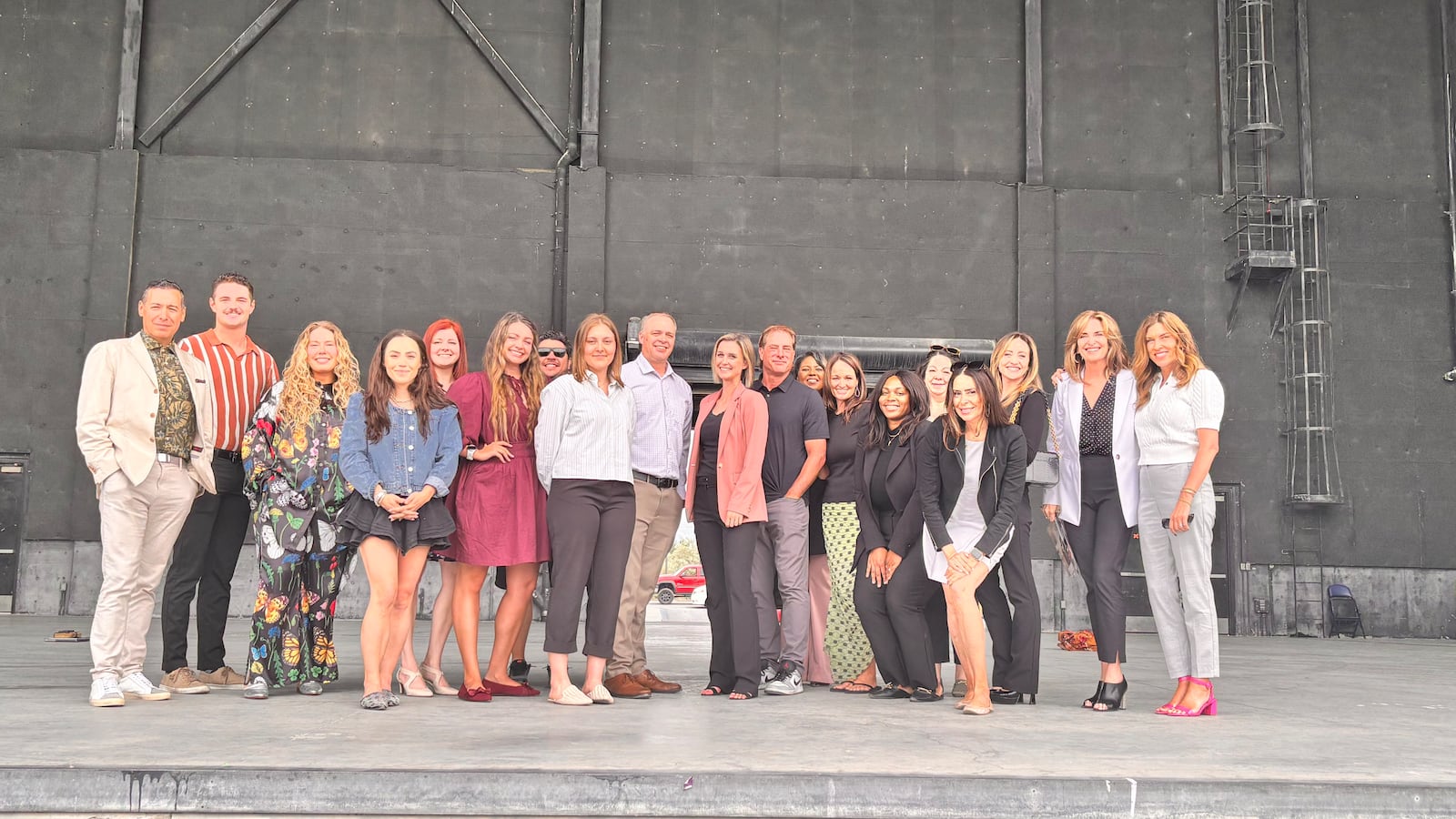Editor’s note: Nikki Walker passed away on June 23th, 2025, after this roundtable discussion took place. We are publishing her insights with respect for her memory and contributions to this topic.
Last month, Utah Business partnered with Live Nation to host a roundtable on community and employee engagement. This conversation was moderated by Roxann Smith, a women’s sports journalist.
How does your company invest in creating community goodwill through brand deals, corporate sponsorships and entertainment?
Nikki Walker | Founder | NWPR & Consulting
Figuring out what the North Star is for the organization and seeing how that aligns with potential sponsorships is important. When doing sponsorships, it’s also so important not to just slap your brand onto the back of something. That is not a partnership; that is an advertisement. Get out into the community. Figure out the ways that you can fit into that organization and provide value for your employees.
Cassie Meyers | COO & Managing Partner | Capita Financial Network
We like to partner with things of meaning and value to the community. Every once in a while, because wealth management isn’t a sexy industry, we like to do something fun and memorable. … I think it’s OK to negotiate those, and I think it’s OK to think outside the box. … We did that with Stadium of Fire. … We said, “We’ll be the main sponsor for the drone show.” It was such a cool moment because … you see this incredible drone show, and at the very end: “Brought to you by Capita.” They put our logo in the sky. I knew it worked because me and my business partners’ phones flooded. We nailed it.
What goes into your company’s decision-making process when choosing who to sponsor? Do they always align with your industry or do they sometimes branch out?
Kaili Spear | VP, Marketing | JobNimbus
Most of our partners and sponsorships have been mainly roofing industry-focused. We get to work with blue-collar trades, and our whole mission as a company is to make contractors heroes. We partner with distributors and manufacturers and roofing suppliers and fencing suppliers. … When I think of all the sponsors we have, [I’m focused on] what they are doing to help us make contractors’ lives easier. [Contractors are] very community-driven.
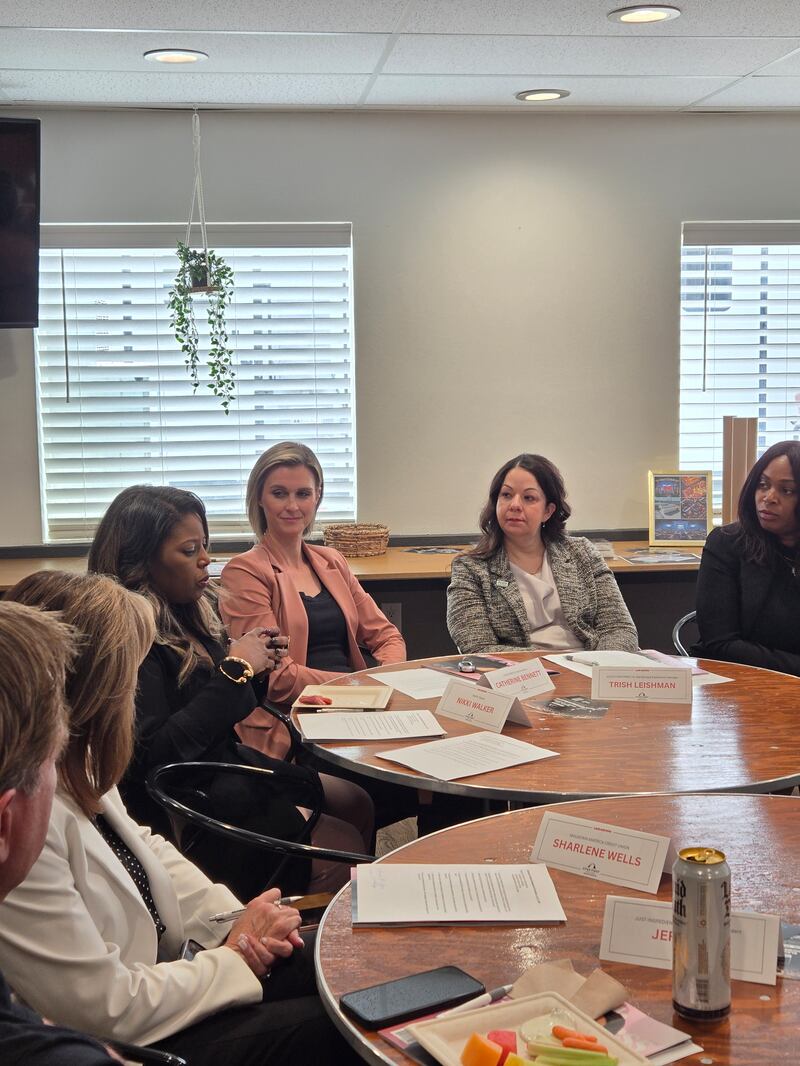
Stephanie Rendon | Sr. Director, Operations & Business Development | Beddy’s
Our customer is predominantly the mom in the home, so we market mostly to the mom. We hear customers often saying, “My husband’s not on board with the price tag.” … How do we get into a male-based audience? How do we get validity behind our product when we’re mostly online? … The sports world is huge for that. If you see the name of a company on the side of a ballpark, it immediately elevates the brand into a trusted place. … So we started conversations with [Miller Sports + Entertainment]. … We just made them our friends, and they loved us because we just didn’t go away. By the time they were ready [for sponsorships], there we were.
Sharlene Wells | SVP | Mountain America Credit Union
We actually separate our marketing dollars and our community engagement dollars. … I work very closely with the marketing department to see what they’re sponsoring, but they’re tied to ROI. We are not. … My whole philosophy with my team and community engagement is: What’s best for the community? … It’s not a big ROI at all, but that allows us to really put a focus on that community engagement.
Merry Osborne | Director, Marketing & Client Experience | Tanner LLC
With an accounting firm, they do an ROI. But we’re a relationship-driven firm. We focus on our relationships with our clients, which are very long-term. For sponsorships, we track not just our ROI, but also the data of what relationships are created. If a sponsorship has just a logo, that’s much less appealing than being able to attend something or be there with actual human beings.
Nate McDonald | Director, Government & Community Relations | Clyde Companies
At Clyde Companies, most of our work is business-to-business. We don’t do a lot of brand deals;
We do mostly corporate sponsorships, primarily for the community aspect. … When we do corporate sponsorships, so much of it is focusing on the priority of the community we’re trying to work with. That doesn’t always align with our industry. I think there’s an opportunity to recognize that their priority becomes our priority.
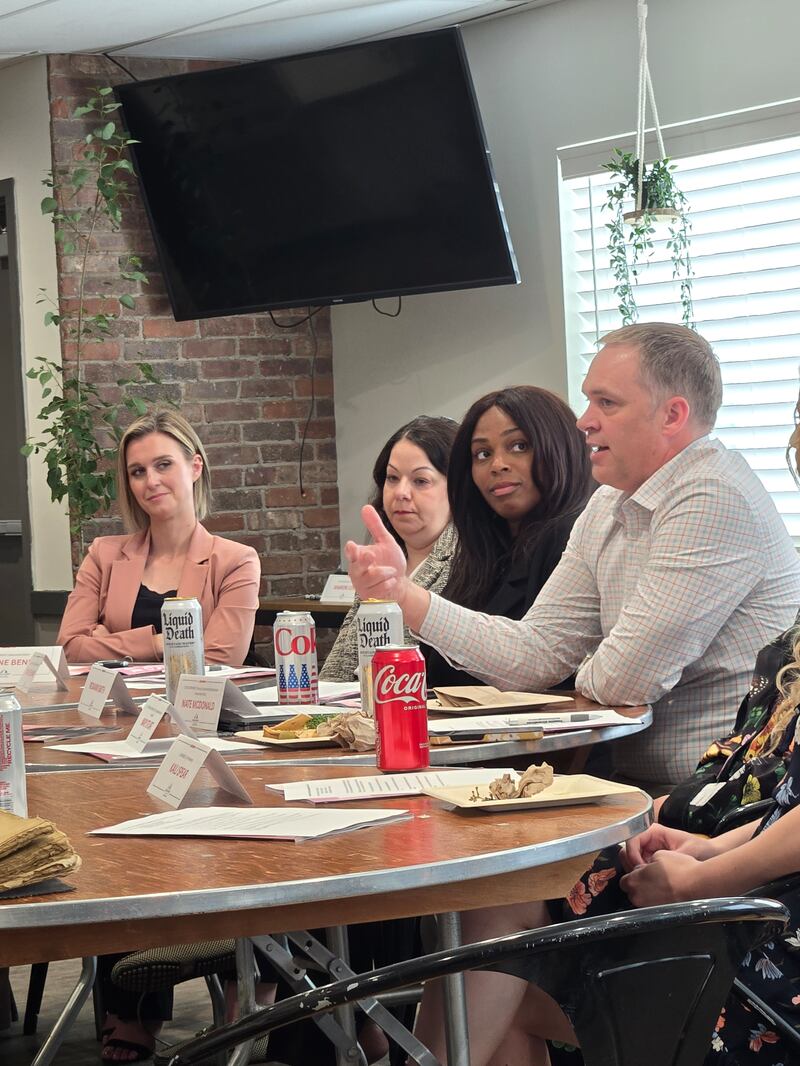
Trish Leishman | Sr. Marketing & Operations Manager | Alsco Uniforms
At Alsco Uniforms, we provide uniforms, linens, restroom supplies and first aid to all of the arenas we partner with. Not only do we partner with the teams, we also service all of the arenas and all of the major sports companies. Like Nikki was saying, rather than just placing your logo places, being able to have that partnership where you’re providing services on both sides is a priority of ours.
When is the right time to pursue corporate sponsorships?
Mary Stuart | Corporate Partnerships Strategist | Best Friends Animal Society
In 2016, we rolled out our no-kill initiative: to make the nation no-kill by 2025. Along with that, we had to start searching for companies that would help us push to get to a hundred percent. In 2018, we decided to build a pet resource center down in Bentonville, Arkansas, which helped build relationships with Walmart, getting them on our advisory committee. It’s been a long process of really nurturing those relationships, getting them involved at every level we can. That has led to this year being the first year they have ever brought on a partner like us and featured us in their stores. We are the first animal welfare nonprofit to ever be a part of Walmart, and it was extremely successful. … It’s taken a long time, but once we made this no-kill goal in 2016, we started aligning ourselves with brands that would help us achieve our mission. It’s really paying off.
Robyn Cohen | SVP | Universal Media
The right time to pursue corporate sponsorship would be now in this environment. [When corporations are] rolling back DEI initiatives and there is backlash against Pride month, these are the moments when corporate sponsorships mean everything. If you are part of a firm or a company that is brave enough and courageous enough to take a stand, those, to me, are the moments where corporate sponsorships really go a long way.
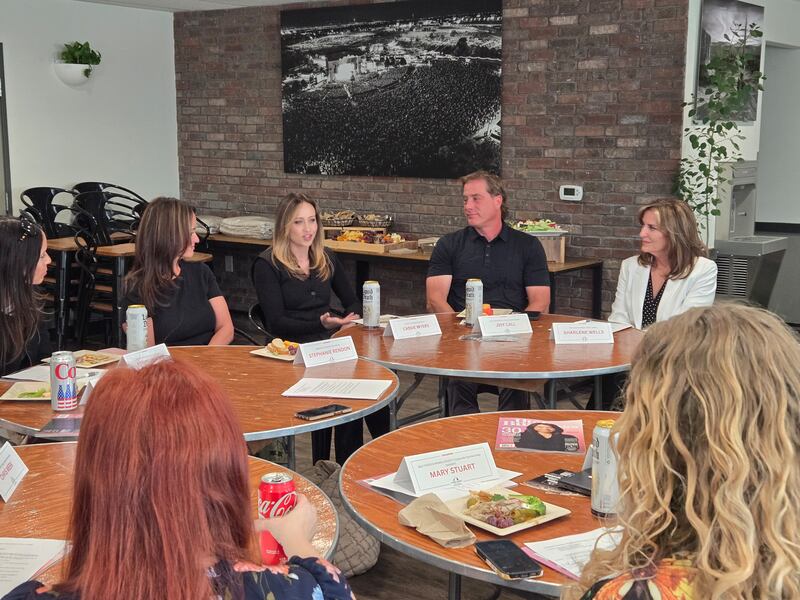
Nate McDonald | Director, Government & Community Relations | Clyde Companies
I would say never hesitate to ask for corporate sponsorships. Recognize that corporations do have timing: Budgets matter and when you ask matters. But for starting the relationship, the timing doesn’t matter. You want to do that whenever.
Kaili Spear | VP, Marketing | JobNimbus
If someone can pitch me an opportunity, small or big, and they can clearly identify, “This is the audience you’re going to be talking to and this is the kind of results we’ve seen in the past,” and it’s something that aligns perfectly with my goals, I have way more flexibility to say yes. … As we get to our bigger manufacturing and supplier partners, most of the time, the budget’s not the problem. It’s that they can’t add it to their own queue to do themselves. … If you can present something that’s 90 percent of the way there, that’s creative, that’s something they haven’t done before, most of the time it’s a yes.
Why do some partnerships fail despite being a good fit?
Sharlene Wells | SVP | Mountain America Credit Union
Lack of accountability. There are so many times when you have such high hopes that something is going to go well, but when you get to the end of the event or project, they just don’t provide the right report. They don’t show you the use of funds, and it’s hard to do it again. If people came better prepared with a pitch on the accountability side of things and follow through, I want to stay partners.
Trish Leishman | Sr. Marketing & Operations Manager | Alsco Uniforms
Open communication, making sure that partners understand what the deliverables are and that we understand how they’re going to be presented, that’s what really makes it work.
Jeff Call | Co-Founder & President | Just Ingredients
Ultimately, the accountability falls on you to make sure you’re having somebody in your company follow through on commitments, making sure that when you have a contract in place, you specify what you specifically want and hold [your partners] to that. … We had a partnership in another state and they promised us the world. … When we saw what they had actually done compared to what they pitched us, it was completely different. We said, “Hey, that’s not what we talked about.” We went through and they fixed it. It was no problem. But if we had not been involved, they would’ve done that all year long — for the length of the contract — and we would never have known. It’s up to us to make sure they keep their word.
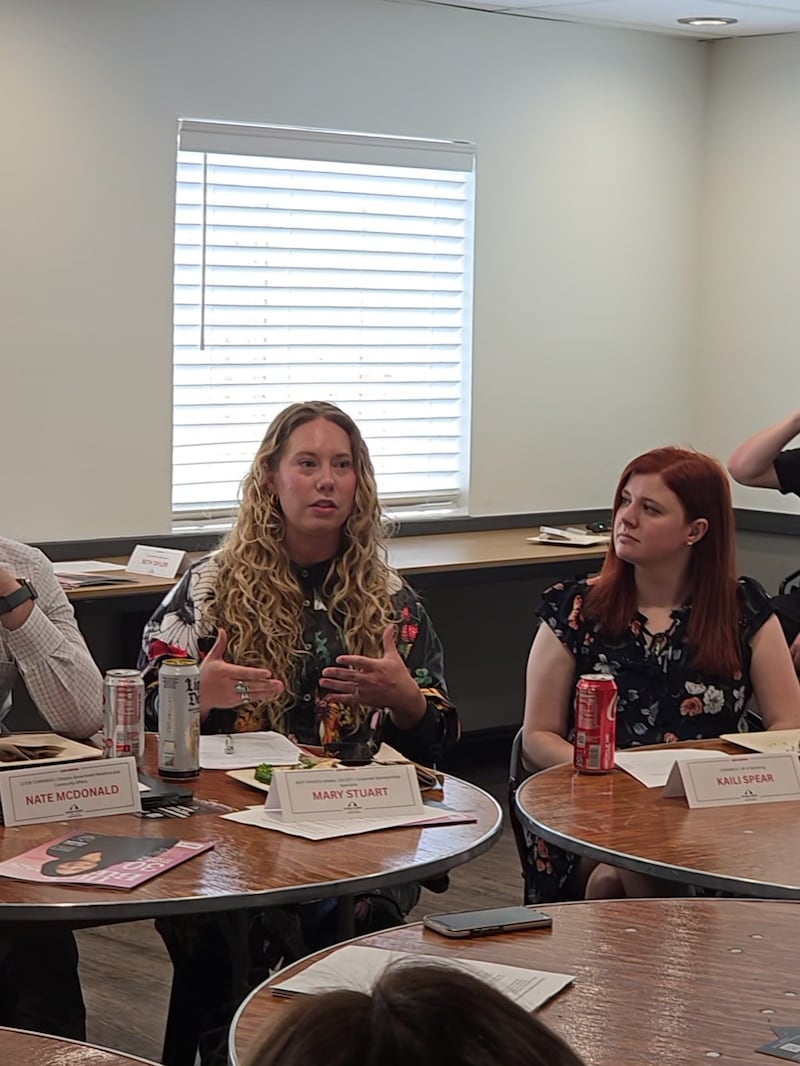
How does social media influence partnerships, brand deals and overall brand relevancy?
Chris Meek | VP, Corporate Strategy & Brand Partnerships | Gabb
The influencer generation has made such a huge impact on our business. Within the first three years of our business, we could attribute a large percentage of our revenue to influencers on social media. That has shifted over the past couple of years because consumers are far more aware of influencers being paid or commissioned to promote a product. We had to pivot on how we look at social media affiliates and influencers. If we’re focusing on the influencer that has hundreds of thousands or a million-plus followers, we notice that our engagement and our conversion isn’t as productive anymore. Finding the real moms and the people who are authentic, that’s really where we get the benefits.
Stephanie Rendon | Sr. Director, Operations & Business Development | Beddy’s
Beddy’s was built on social media influencing. Our founding owner is still an influencer with a really large audience. She continues to be our most powerful influencer for Beddy’s products, and not because of her audience or her following, but because she’s authentically talking about the product. … We’ve had to look for those more impactful, smaller audiences.
Mary Stuart | Corporate Partnerships Strategist | Best Friends Animal Society
On our end as a nonprofit, we sometimes will get companies approaching us that want to work with us because they want to leverage our audience. That can get really tricky because we are mission first. We are totally open and try to be really upfront [about our standards]. We can do social media with you, but it has to be organic toward both of our brands. We have to approve this and make sure that it’s not just a big advertisement toward our audience.
When should a company reevaluate its entertainment or sponsorship strategy?
Nikki Walker | Founder | NWPR & Consulting
It’s all relevance. … I can remember doing sponsorships and not being able to fill a table. There might be a reason to reevaluate that partnership if you can’t get the interest and the engagement from the people you’re trying to engage with the partnership.
Merry Osborne | Director, Marketing & Client Experience | Tanner LLC
Even when it’s going well, we [reevaluate]. We reevaluate partnerships every year if it’s a return sponsorship. … We will have people who are the champions of a sponsorship present on it to our partner-director group about what the sponsorship meant to the company that year. Even when it’s going well, having that kind of analysis and that data is positive.
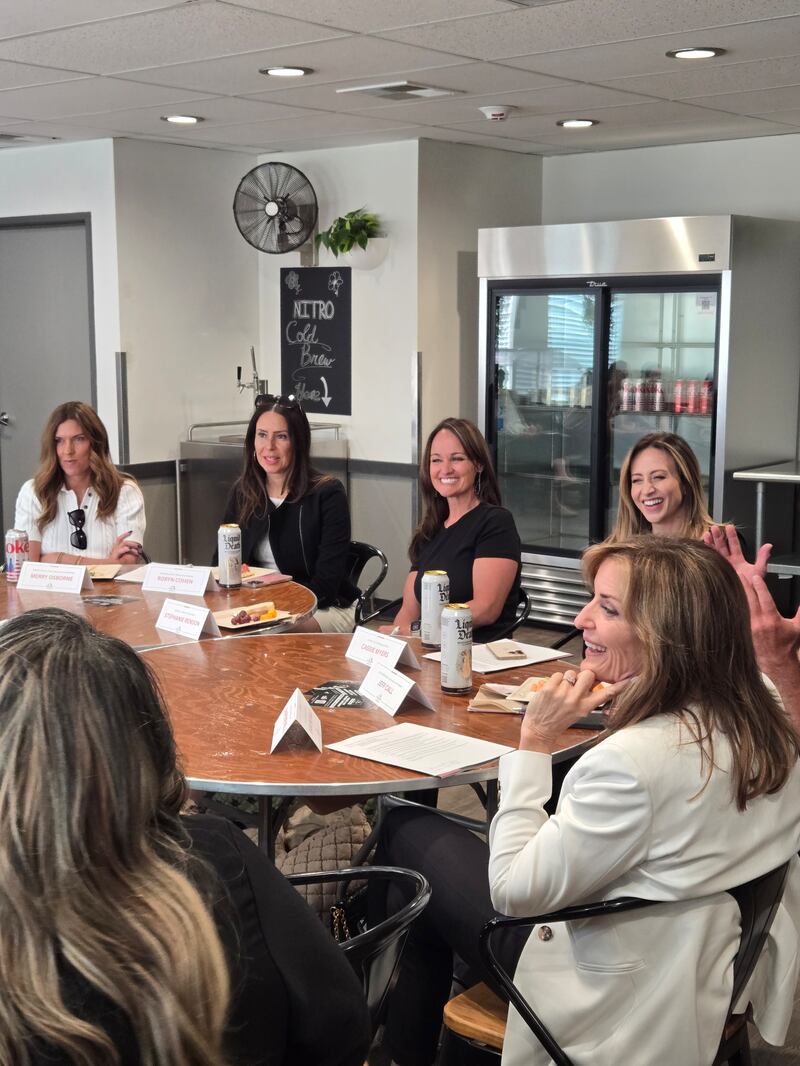
How can companies make smarter, more strategic choices when deciding who to partner with?
Cassie Meyers | COO & Managing Partner | Capita Financial Network
When we decided to go to market and spend our dollars, we wanted to be more than just financial planners. We wanted to engage in the community and truly help. … We’ve decided to do a great big event for women in business. Then we helped with Show Up for Teachers. We’ve helped nurses, and we’ve helped mental health. … We had Intermountain Healthcare approach us and ask if we would give free education to their employees. We said, “Sure.” … Then we had [requests to] help retirees. We’re like, “Yeah. We’ll spend an hour with them.” What looked like sunk dollar costs … became our biggest growth moments. … As you’re analyzing your numbers and your data, what you think might not work is the exact thing that will work. Sometimes, just putting good karma out there with no expectation of return is actually where your return comes from.
Robyn Cohen | SVP | Universal Media
I’m always trying to think of ways I can add more value to the advertisers we’re working with. A lot of our media assets are in retail environments, so there is an opportunity to do something onsite that can provide additional ROI to campaign funds. On the event side of things, … you need to make sure that the experience is worth the sponsorship. Make them as mission-driven as possible.
Chris Meek | VP, Corporate Strategy & Brand Partnerships | Gabb
At Gabb, whenever we attach a social initiative or community-driven impact piece to what we’re doing, those become our biggest moments in growth. Strategically, you have to think about both. Here’s the financial impact, and here’s the community impact. If you marry those, it’s always resulted in greater returns for us.
Jeff Call | Co-Founder & President | Just Ingredients
It comes down to what you’re wanting to accomplish. … Our whole mission is to educate first. Products only, in reality, help us with our goal of educating. We want to help people become healthier and live healthier, happier lives. … We look at who’s the best person to work with or the best group to work with. The Jazz are great, but ultimately, it’s about getting our name in front of people so they become interested in who we are. It doesn’t really matter from that perspective. It could be anything.

